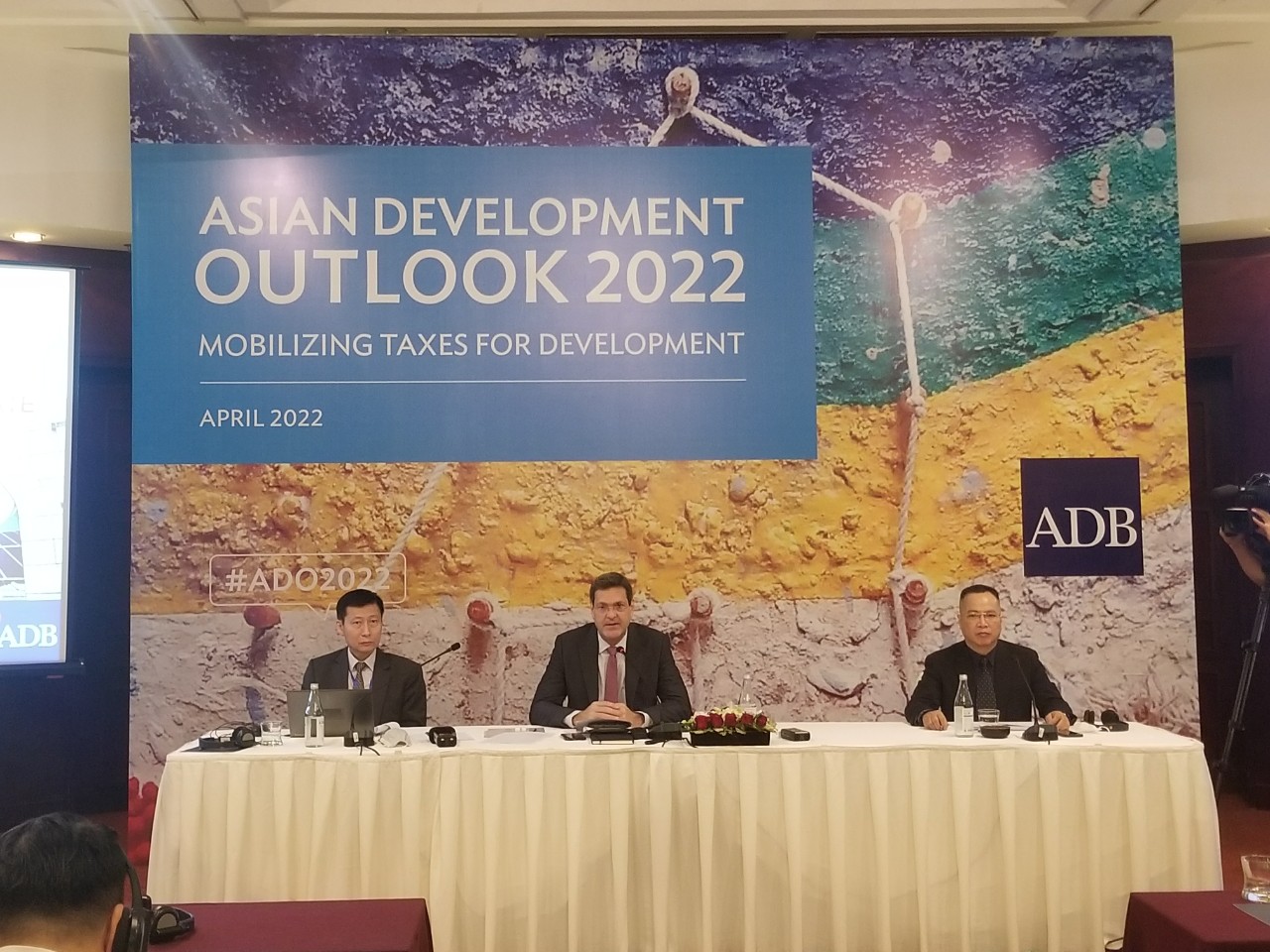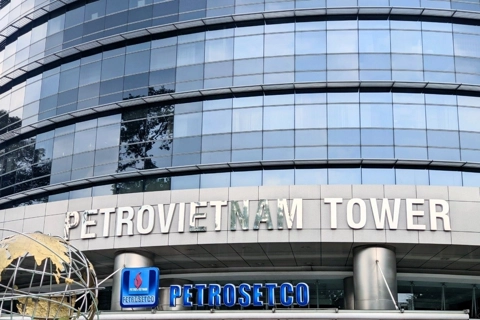Vietnam’s economy set for strong rebound amid global economic uncertainty: ADB
The timely shift of the pandemic containment strategy helped Vietnam restore economic activity and reduce bottlenecks in the business environment.
Vietnam’s economy is expected to rebound by 6.5% this year from 2.6% in 2021, and further expand by 6.7% in 2023, thanks to the high vaccination rate, trade expansion, and continued accommodative monetary and fiscal policies, according to a new report released today by the Asian Development Bank (ADB).
| Overview of the launch. Photo: Hai Yen |
“The renewed Covid-19 outbreak hindered Vietnam’s economic recovery, tightened the labor market, and disrupted manufacturing and supply chains in 2021,” said ADB Country Director for Vietnam Andrew Jeffries at the launch.
“The high vaccination rate, however, enabled the government to abandon harsh containment measures. This timely shift of the pandemic containment strategy helped restore economic activity and reduce bottlenecks in the business environment,” he said.
Giving a more detailed look at the country’s prospects, Principal Country Economist of the ADB in Vietnam Nguyen Minh Cuong expected a recovery in the labor market, along with monetary and fiscal stimulus measures of the Government’s Economic Recovery and Development Program, will spur industrial growth by a projected 9.5% in 2022. Agriculture output is expected to grow 3.5% this year, on revived domestic demand and rising global commodity prices.
In addition, the re-opening to international tourism in mid-March and easing of pandemic controls are expected to boost services, with the sector forecast to grow by 5.5% this year, he said.
Accelerated public funding disbursements will drive construction and related economic activities. In tandem with the economic revival and the uncertainty of global oil prices, inflation is expected to accelerate to 3.8% in 2022 and 4.0% in 2023.
Meanwhile, “improved coordination between the central and local governments and restored labor mobility will continue to build domestic and foreign investor confidence,” he told The Hanoi Times.
The European Chamber of Commerce in Vietnam’s Business Climate Index in the fourth quarter of last year showed European firms had an optimistic view of the country’s business environment after the government loosened harsh Covid-19 containment measures.
Foreign direct investment disbursement in the first two months of 2022 increased by 7.2% over the same period last year, he said.
In addition, the Regional Comprehensive Economic Partnership (RCEP), which came into effect on January 1, 2022, is expected to accelerate trade recovery once the Covid-19 pandemic subsides, forming stable and reliable export markets for Vietnam, Cuong suggested.
Nevertheless, Cuong also highlighted near-term downside risks that could cloud Vietnam’s recovery.
“The high Covid-19 infections since mid-March, if not abated, could obstruct the economy’s return to normalcy this year,” Cuong said.
A slowing global recovery and a surge in global oil prices resulting from the armed conflict in Ukraine would affect Vietnam’s external trade and inflation. Recovery also depends on the government’s speedy and effective rollout of the economic recovery and development programs.
More work to push up stimulus program
The government has launched two fiscal and monetary support programs, from April 2020 to July 2021, to tackle the economic impact of the Covid-19 pandemic. In response to Covid-19’s resurgence in 2021, the National Assembly, in January 2022, passed a resolution on new monetary and fiscal measures to accelerate the implementation of the ERDP (Economic Recovery and Development Program) this year and next.
“The program’s effective implementation will be critical for Vietnam to revive its growth momentum, but its timely delivery faces several policy challenges,” he said.
Infrastructure development is one of the program’s most significant components that has been allocated a VND113 trillion budget ($5 billion) for 2022 and 2023.
The timely implementation of the infrastructure program may be at risk as Cuong pointed out “a systemic problem” in project preparation, approval, and disbursement caused by complex and rigid public investment procedures.
This is especially for land acquisition, resettlement, and procurement, he said, which requires radical simplification and changes in public investment regulations and policy coordination.
Interest rate subsidy totaling VND40 trillion ($1.7 billion), a major fiscal component of the program, is expected to spur aggregate demand.
But because creditworthiness and capacity to recover are key conditions for firms to be able to tap these loans, small and medium-sized enterprises may not be able to meet the criteria because their balance sheets and capacity have been weakened by the Covid-19 pandemic.
Another concern is that the interest rate subsidy program could be vulnerable to subsidized loans being misused for other purposes, including investing in risky sectors, such as stocks or property, Cuong said.
To prevent this from happening again, clear guidelines and close coordination between concerned agencies will be crucial to strengthen the monitoring of the program’s implementation.
A critical fiscal component of the stimulus program is a 2% value-added tax (VAT) reduction for products and services in 2022, from 10% to 8%.
The total value of the tax cut is approximately VND49 trillion ($2.1 billion). The VAT reduction could generate substantial pass-through and broad-based impacts if successfully implemented.
But the eligibility criteria and procedures are complicated and could limit the benefit of firms from VAT reduction.
“Clearer eligibility criteria and procedures are needed to support a speedy implementation of the VAT reduction,” Cuong suggested.













